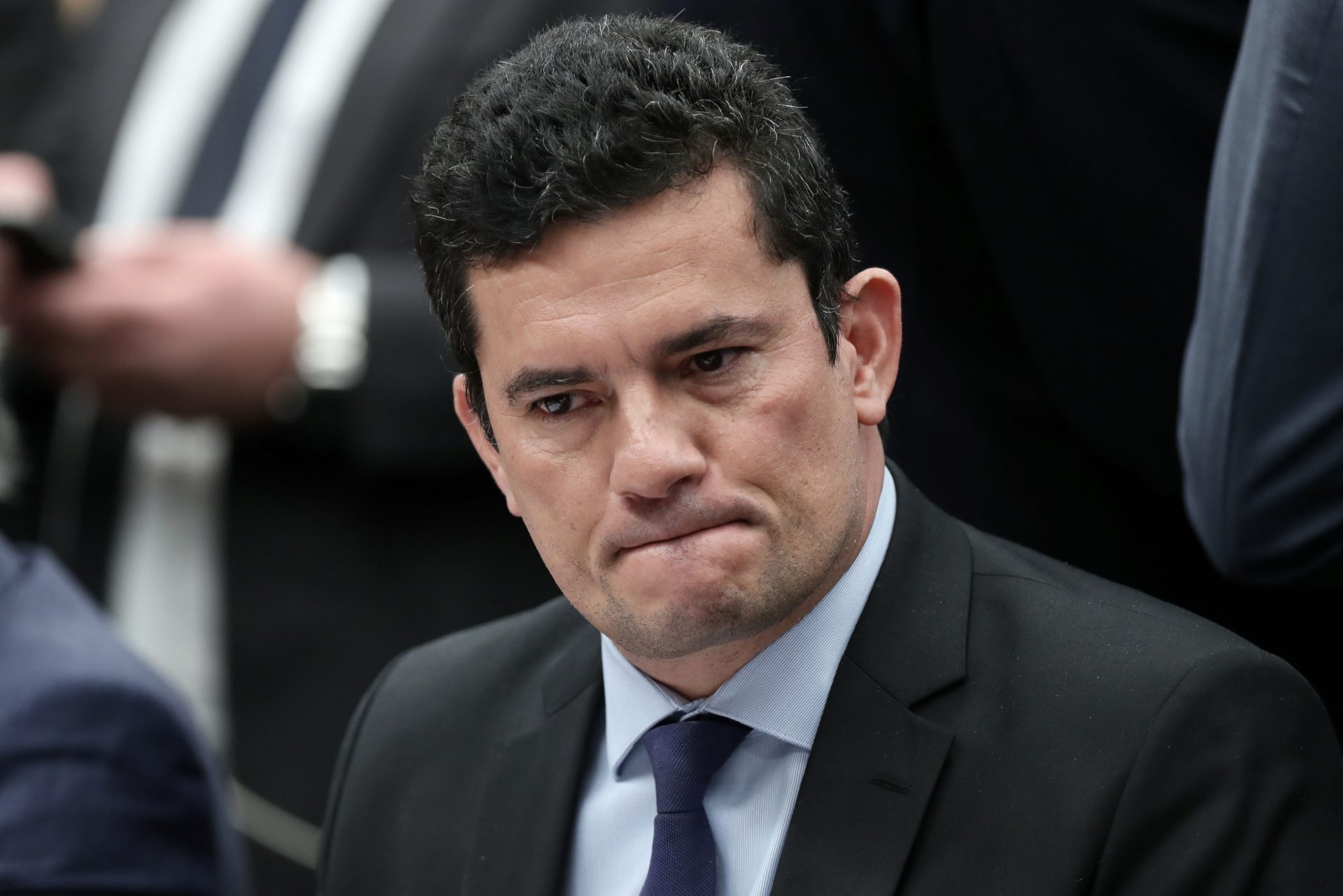Sergio Moro’s hypocritical crusade against Jair Bolsonaro

Brazil is going through many crises simultaneously. It is about to become one of the pandemics global epicentres and a political crisis is also growing stronger each day.
In the last few weeks, at least four of Jair Bolsonaro’s administration ministers have resigned or were forced to do it. Maybe the most challenging resignation is that of his former minister of Justice, Sergio Moro. Whilst resigning, he accused Bolsonaro of politically meddling in the Federal Police of Brazil. Thus, the former judge – who led the Car Wash anti corruption operation – made clear his intentions to recover the role of “justice” that led him to fame.
However, by doing this Moro risks standing on a slippery slope.
At the bottom of this sudden change from Bolsonaro’s star minister to his persecutor there is a paradox Brazilians should never forget. In 2017, as a judicial power authority, Moro convicted former president Luiz Inácio Lula da Silva and his words became popular: “The law is for all”. But later when news on how he manipulated denunciation mechanisms and hid evidence from the Supreme Court was disclosed – he convicted Lula for “indeterminate acts” with the Porto Alegre (a city in the southeast of Brazil) appeal court endorsement, which has reckoned that Lava Jato (“Car Wash”) operation does not have to abide by the due process rules -, it was clear that, in his opinion, the law is not the same for everyone.
So, when Moro accused Bolsonaro of politicizing the justice as he tried to meddle in the Federal Police to obtain data on developing inquiries, we should notice the irony of it.
Although probing Bolsonaro’s alleged attempted to meddle in independent judicial branches is imperative, the justice system and the citizens should not stop questioning (and probing) Moro’s methods in his anti corruption crusade when he was a judge, and also his complicity when he was a member of the Bolsonaro administration.
The disclosure of ties between the president’s family and the militia that hold most of Rio de Janeiro under control, and the president’s attempts, revealed to the public in the last few months, of preventing judicial investigations, give support to Moro’s claims. However, what the judge did not tell the public opinion – or the police officers who recently probed him – is that, according to some investigative stories, he has also used his political influence as a minister. As reported by Bolsonaro himself, Moro gave him inside trading on Federal Police ongoing operations that could affect members of his government.
Even before his arrival in Bolsonaro’s cabinet, during his time as a judge, Moro has clearly signaled his disrespect for the rule of law. As a judge in charge of Car Wash, he intimidated and frightened the few people who criticized him then, whether they were journalists, lawyers or scholars. Even though NGOs like Reporters Without Borders or organizations such as the Brazilian Bar Association protested against Moro’s methods, the judge kept on his practices and even illegally tapped lawyer-client phone calls in order to foresee defense strategies.
Instead of submitting his resignation, Moro only apologized to the Supreme Court. This is a common strategy in Bolsonaro’s government: one just has to play guilty so as not to suffer legal consequences from their actions. The citizenship ministry Onyx Lorenzoni said he was sorry for accepting illegal money into his electoral campaigns. Instead of launching a Federal Police inquiry – under his command – Moro showed “great respect” for his colleague for he “admitted his guilt and adopted measures to correct his wrongs”. Jair Bolsonaro himself has recently apologized (to a journalist who he had told to “shut up”) without further consequences.
When he was a minister under Bolsonaro, he silenced before many offenses to democracy. He said nothing when the president began meddling in the main state bodies in order to control them. And that was how the Department of the Treasury and the intelligence services gradually fell under Bolsonaro’s entourage control. And just a few days before resigning, Moro advised the president on how to decrease IBAMA’s (Brazilian Ministry of the Environment’s administrative arm) monitoring reach.
One must refresh their memories. In late 2018, when Moro agreed to join Bolsonaro’s administration, he seemed to sell the idea that his presence would safeguard the rule of law. Due to Glenn Greenwald’s revelations and the #VazaJato archive, we now know what he takes as rule of law: the collusion between judge and prosecution, handpicked investigations, manipulation of tips and financial motive under an “anti corruption” banner. When these stories were disclosed, Moro followed the president’s strategy: criminalize investigative journalists and attempt to destroy evidence.
Now that he is not a member of the government anymore, Moro has rediscovered the benefits of the rule of law and the freedom of press he helped putting at risk. We must not forget that.
Currently, Brazilian democracy is in danger. Although Moro has done the right thing when he resigned and denounced the possible president’s violations of law, the Brazilian justice system must examine the investigations on his methods as a judge as soon as possible.
If Moro himself really wants to defend the country’s democracy and prevent authoritarian plunges of a worsening Brazilian dystopia, he should quit his political ambitions and acknowledge that corruption cannot be tackled using corrupt methods. An apology is not enough.
–
Gaspard Estrada is the Sciences Po’s Political Observatory of Latin America and the Caribbean (OPALC) executive director in Paris. The author is an specialist in Latin American politics.
NY Times | Revision: Mauricio Pupo.



